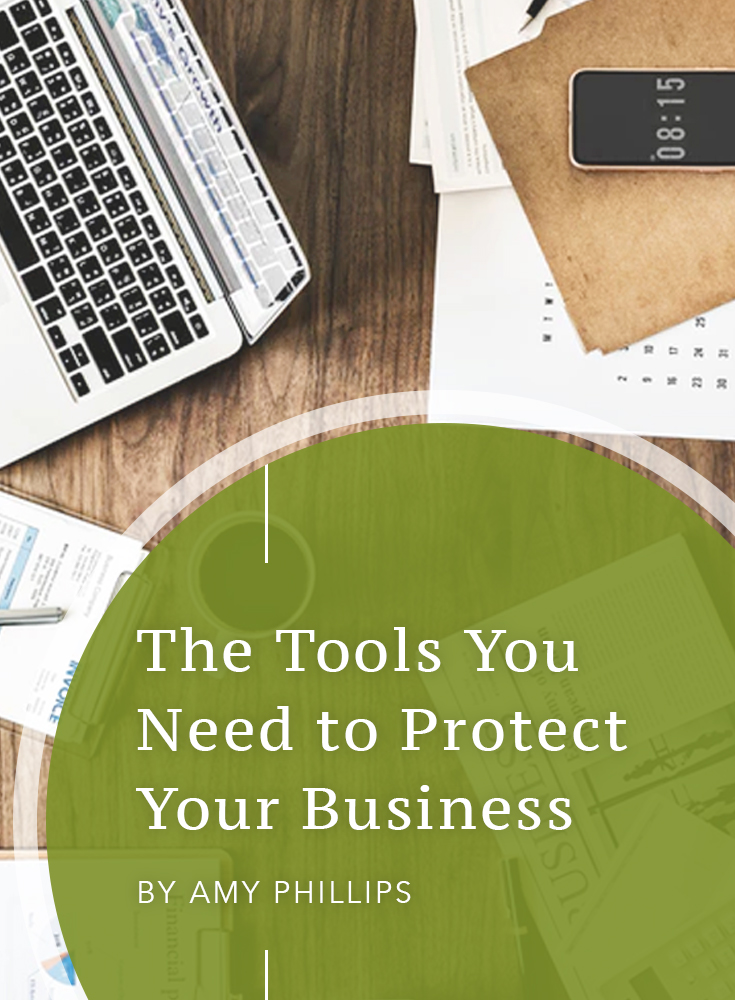Today called for sunny skies, but the unexpected happened (ok semi-unexpected, it is south Louisiana), and it started storming. Of course my umbrella is not in my car (I never have an umbrella). I have found that a lot of business owners treat contracts and insurance (the umbrella of protection), like I treat my physical umbrella – if I have it great, if not things will still be ok.
The reality is that every business needs protection, whether you are a startup or a well established business. As a business owner, you never know when the unexpected may happen. Today, I am going to outline the primary contracts and insurance that most businesses need to protect their companies.
Contracts
It’s my observation that contracts are either overly valued or undervalued by businesses. For example, some businesses won’t do anything without having both parties sign a wordy 45 pages contract that tries to cover everything possible under the sun. In contrast, you have the company who does everything verbally or via email, and has no document outlining what they are providing and which party is responsible for what.
I personally, think there is a happy medium when it comes to contracts. Contracts bring needed protection and value if done properly*, and are an important part of running a healthy business. Contracts should be as short as possible, simple enough that anyone can read them – aka a jury of your peers, and cover any major responsibilities of the parties involved.
*Pay a lawyer to draft your contracts. It’s worth the financial investment. A properly drafted contract could keep you from being taken to court, or ensure your success if you do end up in court. This is not the place to cut corners and pull text off of Google.
There are two types of contract agreements that most businesses need – operations and project/retainer agreements.
|| OPERATIONS AGREEMENT
An operations agreement (or partnership agreement) typically outlines protocols and procedures regarding the ownership and operation of a business owned by more than one individual. Items covered may include:
- Capital Contribution / Percentage Owned
- Management and Authority
- Partner Withdrawal
- Removal of Partner
- Non-Competition and Non-Solicitation
- Death or Incapacity of Partner
- Buy-Out
- Distribution of Assets
- Dissolution
This particular document is not a one and done deal. As your business grows, it’s important to periodically update this agreement. I highly recommend having a lawyer draft this document for you. A lawyer will be able to ask you questions about specific scenarios within the context of your state’s laws. If you want something different than the standard, then you can clearly define that in your agreement. Most of us don’t know the specifics of our state laws, so having the knowledge of a skilled lawyer to ask about each specific scenario is super helpful. It also ensures that your agreement is solid and covers all your bases.
|| PROJECT/RETAINER AGREEMENTS
Most business sell products or services. Service based businesses typically contract these services as a project (session) or as part of an ongoing retainer. In both of these cases, it is important to have a contract outlining the services, cost, and responsibilities of both parties involved. Items covered may include:
- Services Provides
- Fees and Fee Schedule
- Changes to Scope
- Client Responsibilities
- Accreditation (Copyright) / Promotions
- Confidential Information
- Warranties
- Indemnification / Liability
- Term and Termination
Whether you have one contract template with variable verbiage or completely different contracts. It’s important to have a contract(s) that address different types of clients and situations. Typically the bulk of the contracts can be the same, but there will always be key things that need to be addressed in each. When drafting contracts, make sure to discuss the key purchasing scenarios with your lawyer to ensure your contract(s) cover what your clients will be asking for.
Insurance
|| GENERAL LIABILITY
General Liability insurance is the health insurance of the business world. Whether you have a startup or have been running a healthy business for 10 years, you never know when you may be hit with the unexpected. Like health insurance, liability insurance doesn’t cover everything, but it does protect against a wide spectrum of situations.
- Lawsuits, Investigations, & Settlements: You’ve been served…… are the words that no one wants to hear. But unfortunately it can happen, whether it be for damages or injury. Liability insurance covers attorney fees, investigations, and settlements.
- Injury Damages: This seems straight forward but in the digital world we live injury can mean more than just bodily injury. Injury damages cover accidents on your premises or product, your advertising (didn’t see that one coming did you), and even your operations.
- Miscellaneous: Depending on your line of work liability insurance can protect your business from things like alcohol-related accidents (if your business isn’t alcohol-related) or marketing violations that infringe on another business’ copyright.
|| LIFE
When we talk about life insurance, we typically think about individuals wanting to protect those they love in case something happens to them. But life insurance isn’t just for individuals with families, it’s for business owners too. Like a parent that invests in their child, you put time, money, and attention into your business. That’s something worth protecting. This is especially important if you have business partner(s).
Business partners typically bring different skills to the table. Which means that if someone isn’t there anymore, they are going to leave a void that the other partner(s) may not be able to fill. Having life insurance provides the remaining partner(s) the financial resources to 1) pay the heirs of the deceased partner for his/her portion of the company, and 2) pay the salary or salaries of the people now covering the partners job responsibilities. Ultimately, life insurance removes the financial burden the passing of a partner creates and ensures that the business has the best chance of survival.
• • •
Running a business can be overwhelming at times. I hope the above breakdown has helped clarify the key necessities in protecting your business. If you have questions or want to share your recommendations, we would love to hear from you.

| [prev] | [next] |

